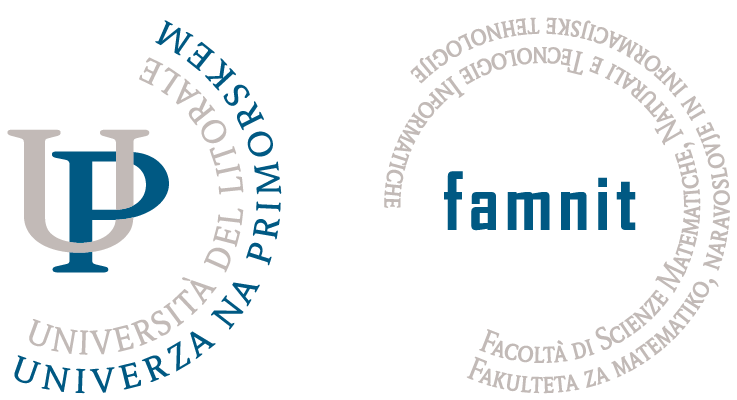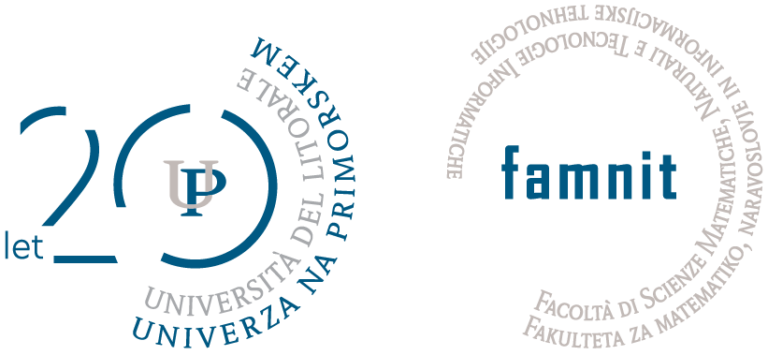The International Day for Women and Girls in Science is held every 11 February at the suggestion of the United Nations. Its purpose is to draw attention to gender inequality, as there is still a large gender gap in all scientific disciplines worldwide, including science, technology, engineering and mathematics (STEM). Women are also increasingly represented in higher education, but they are still under-represented. According to UNESCO, fewer than 30% of all researchers are women.
The University of Primorska has 261 female researchers (51.8% of its workforce), working at six member faculties and one research institute. In the previous year, 21 young researchers were being trained, of whom 12 were women (57%).
In the last year, UP women scientists have been involved in various associations:
- Prof. Dr. Elena Bužan (UP FAMNIT) became a member of: the European University Association (EUA), within which she is part of the Expert Group on Open Science (EGOS); the Expert Council for Animal Protection (SSZŽ) MKGP RS and and the Management Board of the European Consortium for the Protection of Animals (ERGA).
- Prof. Anna Małgorzata Sandak (UP, InnoRenew) was invited to be included as an expert in the database for outstanding women scientists (SWISS National Science Foundation) and published a scientific article in the journal Nature Reviews Materials.
- Doc. dr. Valentina Brečko Grubar (UP FHŠ) became a member of the Council for Sustainable Development and Environmental Protection of the Republic of Slovenia.
- Assis. prof. dr. Anja Pirih and Prof. dr. Mara Cotič< /strong> (UP PEF) became members of the Expert Council of the Republic of Slovenia for General Education.
- Prof. Dr. Mara Cotič (UP PEF) became a member of the Working Group for the preparation of the National Programme for Education for the period 2023-2033.
They have also received various awards, such as:
- Dr. Amalija Žakelj (UP PEF) was awarded the Prize of the Republic of Slovenia for outstanding achievements in the field of higher education;
- Prof. Jelena Sitar Cvetko (UP PEF) received the Little Prince Lifetime Achievement Award for her outstanding contribution to the development of culture and theatre arts for children;
- Dr. Katarina Šoln (UP FAMNIT) was nominated by the Slovenian Science Foundation (SZF) as a recipient of the World Federation of Scientists (WFS) scholarship.
Male researchers dominate the management of research programmes at our University (78% of leaders), as well as all adapted research and international cooperation projects (75%). 71% of basic research projects are also led by male researchers. Women dominate the ARIS projects (80%) only in the management of postdoctoral projects. Women dominate the management of Horizon projects (70%), including the largest project, the InnoRenew CoE, which is led by a female researcher. In other types of research and development projects (Erasmus, Structural Funds, other international projects), the gender balance in project management is fairly balanced, with women leading 58% of projects and men 42%. Women leaders are clearly predominant in projects funded by the Structural Funds (83%) and in projects funded by the Recovery and Resilience Plan (86%). Women leaders are also predominant in projects funded by the Structural Funds (83%) and in projects funded by the Recovery and Resilience Plan (86%)
This Women and Girls in Science Day, we focused on projects and research that, in their fields, contribute in part or in full to addressing issues related to women’s issues.
Two focus on women’s entrepreneurship – WE GREEN and AGRIGEP
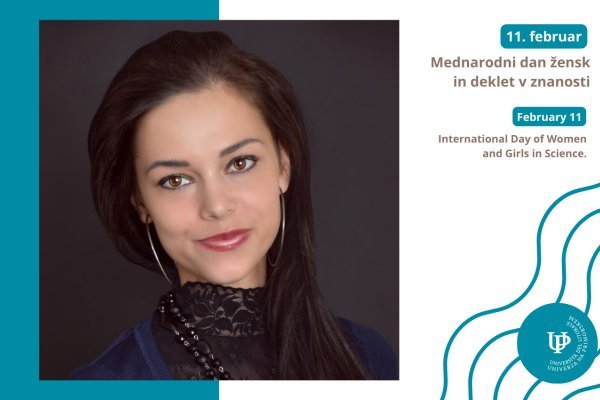 Associate Prof. Dr. Patricia Blatnik highlights the main points of the project AGRIGEP – Assessment and implementation of Agriculture and Life Science Universities’ first Gender Equality Plans in widening countries (Horizon 2020), which addresses gender equality in research and educational institutions, with a special focus on agricultural and life sciences, which remain neglected in terms of equality within STEM.
Associate Prof. Dr. Patricia Blatnik highlights the main points of the project AGRIGEP – Assessment and implementation of Agriculture and Life Science Universities’ first Gender Equality Plans in widening countries (Horizon 2020), which addresses gender equality in research and educational institutions, with a special focus on agricultural and life sciences, which remain neglected in terms of equality within STEM.
“Our work on gender equality in AGRIGEP is crucial in higher education and science, as it addresses many issues specific to women and their position in society. Through the project, we are trying to tackle barriers to access to education, identifying the structural, cultural and other barriers that prevent women from having equal access to education. By exploring these barriers, we design and implement effective policies and guidelines to promote greater inclusion and success of women in education. In addition, it is a well-known fact that there are specific gender issues within certain fields of study where women are under-represented, so the project is particularly focusing on gender issues in the fields of science, technology, engineering and mathematics (STEM), developing specific action plans. Our work seeks to identify the causes of imbalances within these sectors, developing specific programmes and policies to encourage greater participation of women in these fields. The project is working towards the development of more inclusive curricula that promote gender equality and ensure that all students feel equal and included in the higher education environment. Through the project, we are providing new evidence that underpins the development of strategies and effective policies on gender equality in education and research institutions.
By providing reliable analysis and data, we influence all stakeholders and key decision-makers to take action to ensure equal opportunities for all. Our work not only highlights existing problems, but also helps to create and spread awareness about the importance of gender equality. Through education and awareness-raising, we aim to contribute to a gradual change in societal gender norms and expectations, with long-term positive effects on the position of women in society. By focusing on gender equality in education and research institutions, our work helps to ensure that women are better able to develop their skills and knowledge in a wide range of fields. This not only contributes to their personal growth and self-confidence, but also to their economic independence and strength in society. Our research work in this project thus serves as a foundation for building a fairer and more equal society where women can realise their potential without the constraints imposed by gender stereotypes or discrimination”.
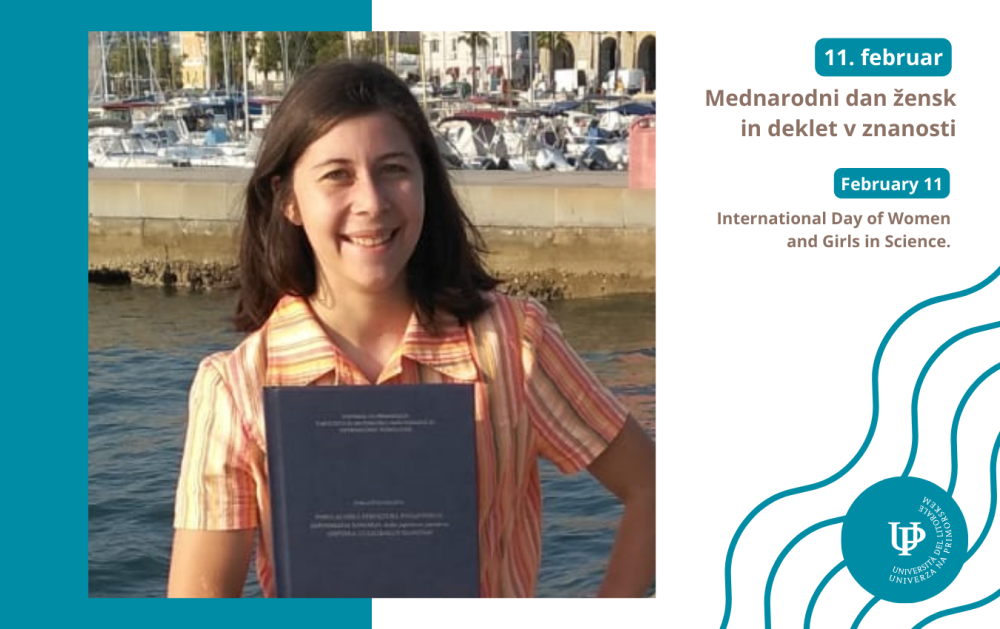 Urška Gerič, M.Sc. in Nature Conservation spoke about women’s interest in studying in the field of bioinformatics and informatics:
Urška Gerič, M.Sc. in Nature Conservation spoke about women’s interest in studying in the field of bioinformatics and informatics:
“In the past, men dominated in technical professions, while women preferred biological, chemical, pharmaceutical,… However, in recent years, there has been an encouraging trend of increasing interest among women in studying bioinformatics, informatics and data science,…. This is reflected in the increasing number of female students enrolling in these programmes. There is also an increasing number of female researchers who are actively involved in research projects in these fields. However, there is still a shortage of women in positions such as professors and assistant professors in IT studies“.
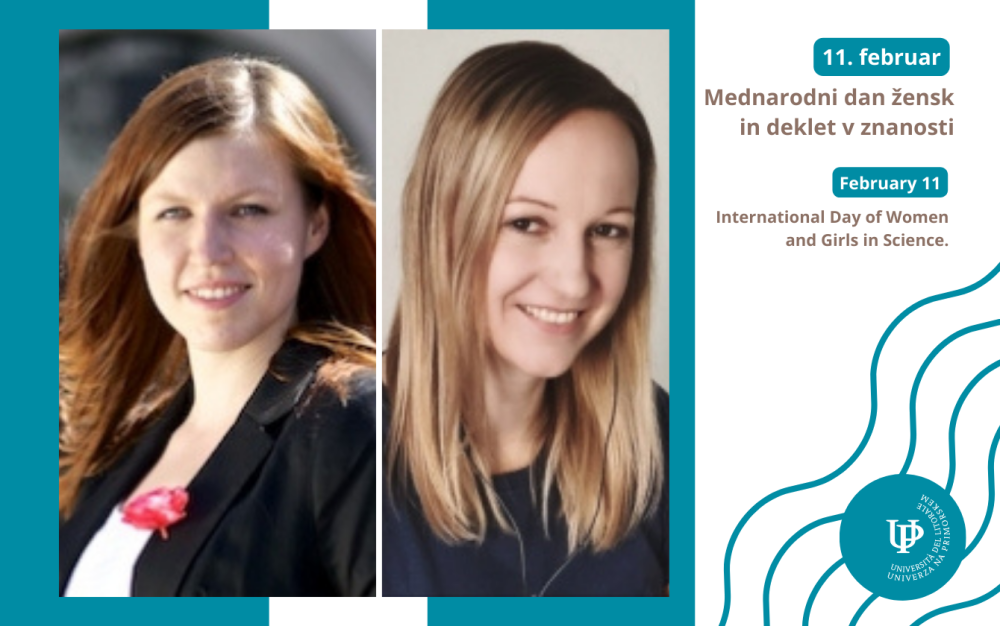 Dr. Urša Mars Bitenc, and Assoc. Prof. Dr. Vesna Jug address research in the field of reproductive psychology:
Dr. Urša Mars Bitenc, and Assoc. Prof. Dr. Vesna Jug address research in the field of reproductive psychology:
“Research in the field of reproductive psychology is crucial for understanding and addressing different aspects of women’s reproductive health and experiences. It provides insights into fertility and reproductive health, addresses different aspects of mental health during the menstrual cycle, pregnancy and postpartum, and provides important information on family planning processes. Research can also address the psychological impact of infertility and assisted reproduction, explore the dynamics of parenthood and child development, and highlight gender differences and societal expectations of reproduction. Research findings can make an important contribution to policy-making and efforts to ensure women’s reproductive rights and access to comprehensive health services, including psychological support and treatment. The field of reproductive psychology is therefore essential for promoting women’s autonomy, well-being and reproductive justice.”
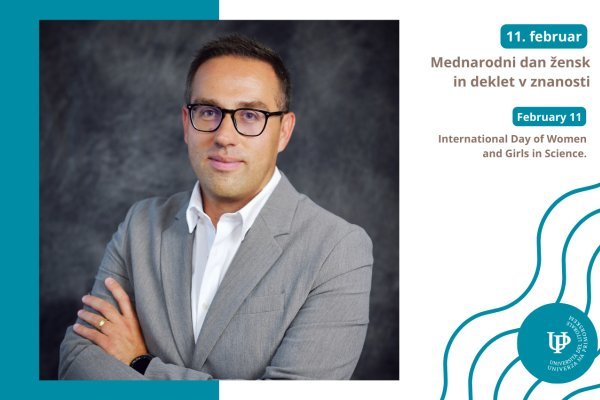 The field of women’s health is of great importance for the success of society as a whole, and it is in this context that Assoc. Prof. Dr. Mirko Proseng, who in December was awarded the title of “Fellow of the Royal College of Surgeons Ireland Faculty of Nursing and Midwifery“, is actively engaged. Fellow membership is offered exclusively by the RCSI University of Medicine and Health Sciences and represents one of the most prestigious professional qualifications awarded to nurses and midwives. Among the important projects he has led is the Cross-Border Network for Immigrant Women: Social Integration, Sexual and Reproductive Health (Integra) project.
The field of women’s health is of great importance for the success of society as a whole, and it is in this context that Assoc. Prof. Dr. Mirko Proseng, who in December was awarded the title of “Fellow of the Royal College of Surgeons Ireland Faculty of Nursing and Midwifery“, is actively engaged. Fellow membership is offered exclusively by the RCSI University of Medicine and Health Sciences and represents one of the most prestigious professional qualifications awarded to nurses and midwives. Among the important projects he has led is the Cross-Border Network for Immigrant Women: Social Integration, Sexual and Reproductive Health (Integra) project.
“Women’s health is undoubtedly the foundation of a healthy society. My work as a teacher and researcher at the UP Faculty of Health Sciences focuses on improving access to quality, woman-centred healthcare, particularly in the area of reproductive health. By supporting and implementing innovative research projects in the field of women’s health and by educating future health professionals, taking into account the needs of women and their social situation in our study programmes, we can have a direct impact on improving the quality of women’s lives and thus on society as a whole.“
Free access to the digital science monograph “Women, Migrations and Health” (Sabina Ličen, Igor Karnjuš and Mirko Prosen).
The topic of equality was also presented at the Consultation on Gender Equality for an Inclusive University and Society, which covered the broader topic with its contributions.
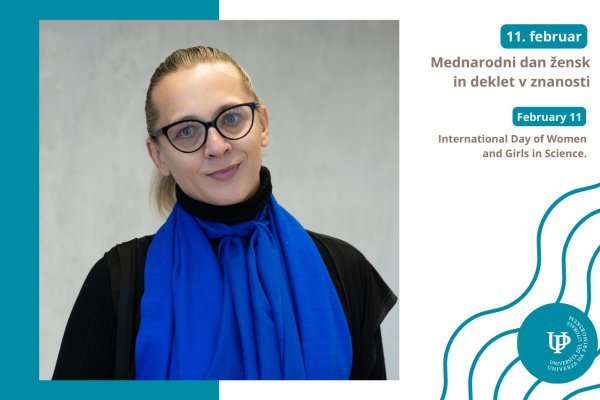
Prof. Dr. Vlado Kotnik (UP FHŠ) shares his thoughts on the International Day of Women and Girls.
“For a long time, gender has been a rather unthought of category in universities. And so have the exclusions, marginalisations and stigmatisations that have resulted from these unthinkings. Universities in the 21st century can no longer afford such unthinking, because gender (in)equality is also their heritage and therefore their eminent problem. The fact that women academics are willing and able to think beyond the problems of universities with ignorance, inequalities and inequities based on gender and because of gender is perhaps the only promise that universities can become better places to live out the principles of autonomy, integrity, collegiality, diversity, equity, inclusiveness, openness and knowledge.”
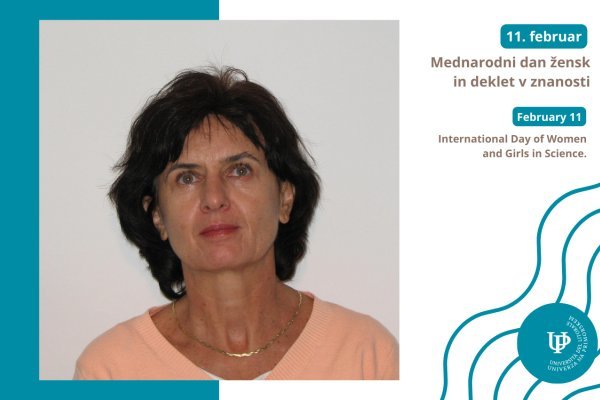 Assoc. Prof. Dr. Karmen Medica ( UP FHŠ) summarises the research work on migration, focusing on the increasing feminisation of migration with the following effects:
Assoc. Prof. Dr. Karmen Medica ( UP FHŠ) summarises the research work on migration, focusing on the increasing feminisation of migration with the following effects:
“First of all, the stereotypical image of family migration, where women were mostly perceived as passive migrants following their husbands, is becoming less and less present. Research identifies how discourses and practices about women as independent protagonists of migration have come to life. They are increasingly present as active participants in decision-making in their own lives and in the lives of their families. Identifying the position and situation of women in migration processes helps to open up new opportunities, competences and better integration of women in the immigrant environment, increasing their employment opportunities and strengthening their social inclusion.
Research also points to problems and shortcomings in the local and family environment, and to the persistence of patriarchal patterns in many places. Work in this area is largely focused on stimulating and developing inclusive communication aimed at participation and co/creation of migrant women’s lives in their new environment.”
